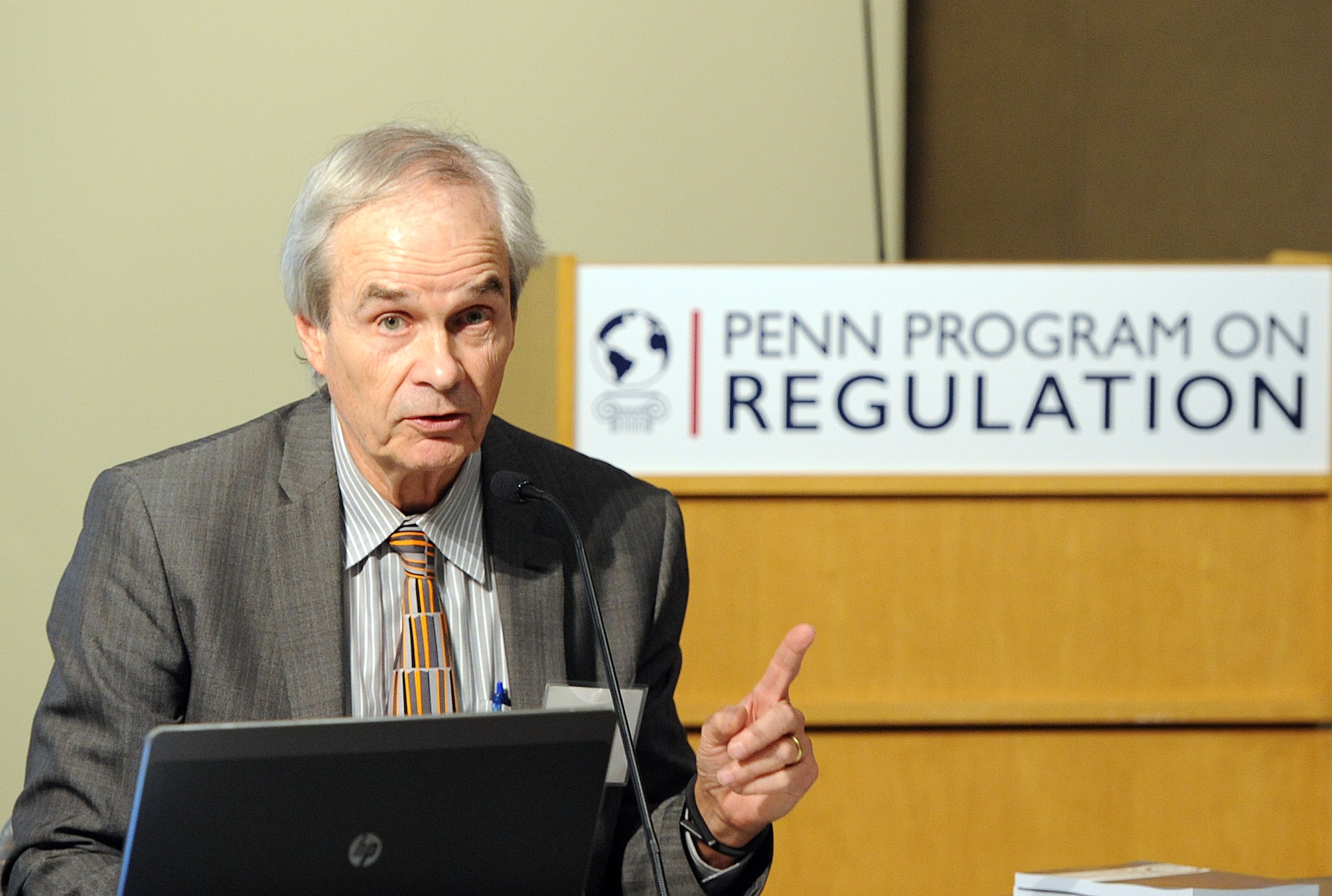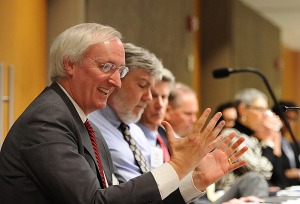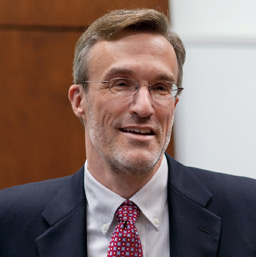
Penn Program on Regulation workshop focuses on key factors shaping regulatory agendas.
With a seemingly endless stream of risks demanding attention in an increasingly modern, complex economy, some of the most important decisions a regulatory agency faces are those about what problems to target. Particularly if agencies desire to stay out in front of issues and not simply react to the latest crisis, the most important decisions regulators make center on which issues are worth emphasizing.
 When agencies fail to set the right priorities, they waste resources and miss opportunities. Moreover, systemic failures in agenda-setting can entrench biases in regulatory policy and make it harder for agencies to change course when the risks they overlooked eventually start to create major problems.
When agencies fail to set the right priorities, they waste resources and miss opportunities. Moreover, systemic failures in agenda-setting can entrench biases in regulatory policy and make it harder for agencies to change course when the risks they overlooked eventually start to create major problems.
Despite the importance of regulatory agenda-setting, scholars have yet to give it much attention. To help advance both research and policy practice, the Penn Program on Regulation (PPR) recently convened a workshop in Washington, D.C. to focus attention on the factors affecting agency agendas.
The workshop, held on Friday, November 7th, in the immediate aftermath of the national midterm elections, brought together about thirty leading social scientists, legal scholars, practitioners, and current and former government officials. Collectively, workshop participants brought to the table high-level experience within all three branches of the United States federal government and within both executive branch and independent agencies. The day’s dialogue began with a keynote address by Paul Verkuil, Chairman of the Administrative Conference of the United States.
For years, agenda-setting has escaped serious academic attention, probably because policy agendas are remarkably elusive and have multiple facets. What constitutes “the agenda” is hard to define and observe. Indeed, as participants in the PPR workshop noted, there is really no single regulatory agenda anyway.
Furthermore, as political scientists have long noted, decisions to keep items off a policy agenda can be just as important as, if not more important than, decisions to put something on the agenda. These “non-decisions” are ubiquitous in the regulatory process, as a recent article by Cass Sunstein and Adrian Vermeule argues, but recognition of non-decisions’ importance makes it difficult to move forward with systematic research on agenda-setting. Explaining empirically why some problems get on an agency’s agenda by necessity requires understanding why other (often speculative) problems do not.
Another reason for the lack of attention to agenda-setting lies in the complexity of the regulatory policy environment. Agendas of federal agencies in the United States are part of a dynamic system made up of a variety of interest groups, members of Congress, and White House officials all trying, both formally and informally, to place their issues on administrators’ radar screens. As many of these principals and interest groups are repeat players, they have incentives to try to structure subsequent political wrangling through constraining devices, such as statutory deadlines for rulemakings, appropriation riders, centralized White House review of regulatory proposals, and a variety of other ex ante procedures designed to control agencies’ agendas.
But even without these formal mechanisms, agencies’ agendas can be significantly affected by external pressures. Participants at PPR’s workshop agreed, for example, that the recent midterm elections would likely lead to some reshuffling of agency agendas in response to the priorities of the new Republican majority in both houses of Congress.
Not only are U.S. agencies embedded in a highly fluid political environment shaped by competition—not to mention affected by random focusing events that can motivate politics writ large—but they are staffed with managers and appointees who have their own ideas about what is important. Sometimes their ideas derive from technical expertise, but often those who work in agencies also have their own, personal “big ideas,” as one of the workshop speakers put it.
 Some of the most challenging issues surrounding agency agenda-setting involve deeply important—and sometimes divisive—normative questions about the appropriate level of responsiveness agencies should exhibit to the many demands of interest groups, political and legal overseers, and the broader public.
Some of the most challenging issues surrounding agency agenda-setting involve deeply important—and sometimes divisive—normative questions about the appropriate level of responsiveness agencies should exhibit to the many demands of interest groups, political and legal overseers, and the broader public.
Of course, just because something is difficult to study does not mean it is not worth pursuing. In that spirit, participants at the PPR workshop jumped headlong into a probing discussion of many definitional, empirical, and normative questions about agenda-setting. The workshop began by discussing the state of existing research literature on regulatory agenda-setting process, and participants benefited from presentations and commentary offered by the authors of most of the leading empirical studies to date. The rest of the day followed with focused attention given to each of the actors and institutions that exert influence over agency agendas (i.e., interest groups, Congress, and the White House).
Participants noted that existing research shows how much agencies’ rulemaking agendas are filled with routine matters. According to a recent study by Connor Raso and Bill West, about a third of agency rules are mandated by specific requests and deadlines set by Congress. Of the remaining “discretionary” rules, the vast majority are small amendments prompted by ongoing informal communications between regulated businesses and agency staff.
The stability of these “subgovernment” activities on agency agendas forced participants in the PPR workshop to grapple with the existence of multiple rulemaking agendas. As one participant put it, agencies can have a little “a” agenda composed of routine regulatory changes and a big “A” Agenda comprising more consequential decisions that present major policy choices. The dynamics of agency agenda-setting depend on which agenda one is talking about.
 Other issues addressed at the workshop included the role of interest group petitions in setting agendas, agency responsiveness to statutory language encouraging or requiring rulemaking activity, and the role in the United States of the White House Office of Information and Regulatory Affairs in reviewing agency priorities at the earliest stages of the proposal development stage and in overseeing the publication of the semiannual Unified Agenda of Regulatory and Deregulatory Actions.
Other issues addressed at the workshop included the role of interest group petitions in setting agendas, agency responsiveness to statutory language encouraging or requiring rulemaking activity, and the role in the United States of the White House Office of Information and Regulatory Affairs in reviewing agency priorities at the earliest stages of the proposal development stage and in overseeing the publication of the semiannual Unified Agenda of Regulatory and Deregulatory Actions.
The workshop yielded some healthy debate where it might be most expected: on the normative questions of just how strongly different institutions ought to control an agency agenda, as well as how these agendas should be set from the standpoint of overall public welfare. Nevertheless, participants agreed on the need to invest more scholarly attention to understanding how agenda-setting currently works in order to inform reform efforts.
As might be expected at a workshop with as ambitious an agenda as this one had, participants did not leave with all the answers. However, the workshop dialogue helped to advance understanding about agenda-setting processes and identify possible research strategies for closing the gap between current practice and more normatively attractive visions of agenda-setting process.
Given the inherent institutional and political complexity of the modern regulatory state as well as the obscure nature of the underlying phenomena, agenda-setting has for too long remained understudied, notwithstanding its substantive importance for the performance of regulatory institutions. We believe that PPR’s recent dialogue helpfully cast a new light on a major stage of regulatory policymaking. A forthcoming report from PPR will summarize the workshop dialogue and will, we hope, continue to move the conversation forward.





